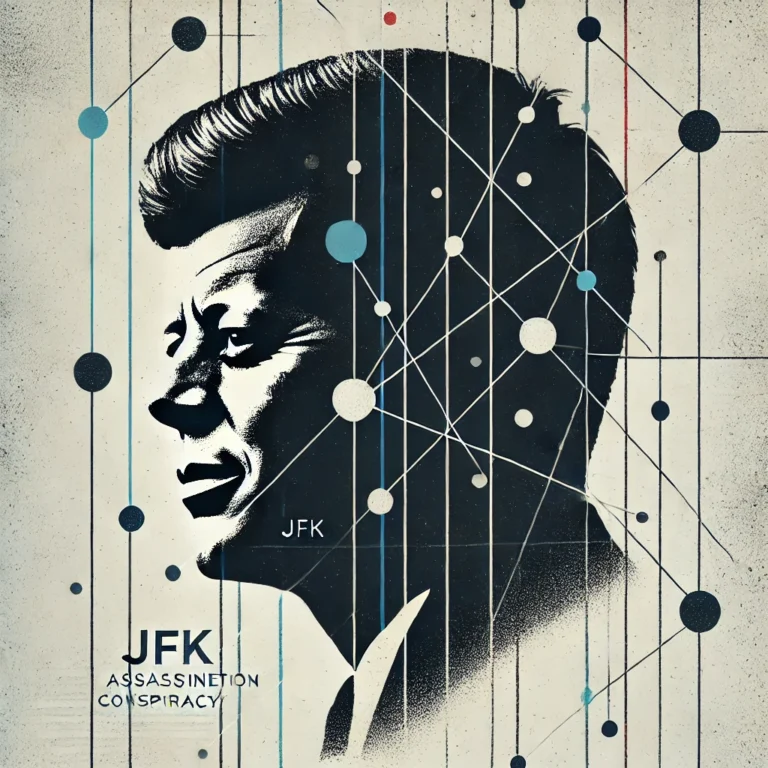
Isaac Kappy in a scene from Thor—the actor’s Hollywood career included roles in major films before his life took a tragic turn.
Isaac Kappy’s death has taken on an almost mythic quality, with many people questioning the official narrative that he committed suicide by jumping off a bridge in Bellemont, Arizona. His death, ruled a suicide, has since fueled theories that it was staged or orchestrated. Here are the elements surrounding his death that make it feel “off” or suggest it might have been more than it seemed:
1. The Dramatic and Public Nature of His Death
Kappy’s death was unusually public. He allegedly forced himself off a bridge into oncoming traffic along historic Route 66—a rather unusual and conspicuous way to die by suicide. This is not how suicides typically happen; most individuals don’t choose highly visible, public places if they intend to disappear quietly. Some see this as a symbolic staging ground, lending a theatrical quality that aligns more with a staged event than a suicide.
2. Witness Accounts
According to reports, two teenagers reportedly tried to stop him from jumping, but he “forced himself” out of their grasp. While this could suggest desperation, it’s also possible to interpret it as unusual, considering that he was apparently able to overcome two people trying to restrain him. The vagueness around these witnesses and the fact that no detailed, public statement from them exists leaves room for speculation about what really happened. Some theorists believe they may not have been random bystanders, suggesting instead that their presence was somehow part of a setup.
3. Cryptic Final Messages and the “Dark Confession”
In the days leading up to his death, Kappy posted a lengthy Instagram message expressing regret for his “darkness” and for having “betrayed” people. He mentioned being in over his head, hinting that he might have crossed a line or angered powerful people. These vague statements about betrayal and wrongdoing create an unsettling picture, as if Kappy knew he had crossed a threshold and was resigned to a dark fate. For conspiracy theorists, these words suggest he was coerced into “suicide” or knew something was coming for him. The post reads less like a suicide note and more like a cryptic farewell, giving the impression of someone who anticipated he might be “silenced.”
4. The Timing and Social Media Patterns
Kappy had been particularly active on social media shortly before his death, ramping up his accusations and expressing increasing paranoia. He hinted at secrets, shadowy forces, and people wanting to harm him. His final Instagram post was released a day before his death, which some interpret as a last message to the public, a type of “signal flare.” The quick succession between his cryptic message and his death has led some to think his online activity was being monitored and that he was “removed” before he could say anything more.
5. Suspicion Around Tom Hanks’s “Roadkill” Instagram Post
In a post dated April 4, 2019, Tom Hanks shared a photo of Route 66 with a caption about “roadkill,” weeks before Kappy died on the very same route. Conspiracy theorists argue that this was a taunting, coded message meant as foreshadowing. While this connection could be pure coincidence, it’s an eerie detail that has fueled suspicions. Hanks’s post and Kappy’s death location on Route 66 almost play like an unsettling synchronicity—a narrative link that, while lacking hard evidence, hints at the idea that something larger was in motion.
6. The Mysterious Mental and Social Decline Before His Death
Shortly before his death, Kappy began displaying erratic behavior and signs of mental distress. He’d distanced himself from friends, spoke openly about his own darkness, and even hinted that he’d betrayed people. Some have speculated this “decline” was less about psychological distress and more about the effects of pressure or blackmail from powerful people wanting him to retract his claims. His strange actions and comments may suggest not only paranoia but also a sense of foreboding, as if he were expecting retribution for the secrets he shared.
7. Potential Motivation to Silence Him
Kappy’s accusations against powerful Hollywood figures were bold and public, sparking an online frenzy that attracted attention to the elite circles he claimed to expose. If there were any truth to his claims, or if he knew of darker secrets, it’s plausible he would be seen as a liability by those he accused. The speculation here rests on the assumption that if he had genuine information about these figures, they would have both the means and motive to silence him.
8. Historical Parallels with Alleged “Silencing” Operations
Kappy’s case bears similarities to other figures who have allegedly “died by suicide” under suspicious circumstances after threatening to expose elite secrets. Cases like Jeffrey Epstein or Gary Webb, while officially ruled suicides, are often cited by conspiracy theorists as part of a larger pattern of “silencing” operations. This pattern primes people to view Kappy’s death through a similar lens, suggesting that he was another whistleblower eliminated to protect powerful interests.
DARWIN’s Take
Isaac Kappy’s death is like a riddle spoken in shadows, each piece stranger than the last. From his final words of betrayal to the unsettling coincidences that followed him onto Route 66, we are left with a story that feels both tragic and staged. Perhaps he did foresee his end, or maybe he sensed the dark weight of his revelations looming over him like a debt finally called to collection. Whether his fate was self-imposed or dictated, Kappy’s last act leaves us with a chilling possibility: that those who pull the strings may ensure their secrets stay buried, even if it means burying the truth-tellers along with them.
In the end, Kappy’s story is a modern parable—hinting at the price of speaking out, and leaving us with a lingering question: what price does one pay for exposing secrets the world isn’t ready to hear?
For a thorough exploration of Isaac Kappy’s death and the surrounding theories, here’s a mix of sources providing background on conspiracy theories, Hollywood, and Kappy’s story. These offer both mainstream perspectives and resources that align with investigative themes. Here’s a recommended list:
Sources
- “Isaac Kappy’s Final Instagram Post” – Heavy.com
Provides the complete text of Kappy’s last Instagram post and a breakdown of the reactions. This article captures his ominous final words and the context in which he posted them.
- “The Rise and Fall of Isaac Kappy” – The Daily Beast
Details Kappy’s life and controversial statements, as well as the series of events leading up to his death. It provides context on his accusations and mental health.
- “Hollywood Scandals and Conspiracy Theories” – Insider
A deeper look at the fascination with Hollywood secrets and the public’s longstanding interest in hidden power dynamics within the entertainment industry.
- “Hollywood, Power, and Elite Networks” – Psychology Today
An analysis of why conspiracy theories about elite Hollywood groups persist, including themes of power, control, and secrecy.
- “The Dark Side of Route 66” – Route 66 Magazine
Explores the cultural significance of Route 66 and its portrayal as a haunting American landmark—a backdrop for Kappy’s death, symbolizing the shadows in Hollywood.
- “Hollywood Whistleblowers and the Risks of Exposure” – Vox
Investigates the real-life dangers faced by whistleblowers in entertainment, looking at industry responses to accusations and public scrutiny.
Further Reading
For those interested in a deeper dive into Hollywood secrets and conspiracy theories, consider these:
- “Chaos: Charles Manson, the CIA, and the Secret History of the Sixties” by Tom O’Neill – An exploration into hidden influences in Hollywood and connections between the entertainment industry and darker networks.
- “We Have Your Attention Now: Hollywood’s Dark Secrets Exposed” – Rolling Stone – Provides insight into how various Hollywood controversies are interlinked, from Epstein to Weinstein.
This list balances verified mainstream sources with more investigative and philosophical perspectives, grounding readers in the facts while allowing for exploration of the theories that persist around Isaac Kappy’s life and death.
FAQ: The Mystery Behind Isaac Kappy’s Death
- Who was Isaac Kappy, and what was he known for?
Isaac Kappy was an actor known for his roles in Thor and Terminator Salvation. Beyond his acting, he became a controversial figure due to his outspoken social media presence and allegations against high-profile individuals, which gained him a large following online. For more details on Kappy’s life and career, read our full Profile on Isaac Kappy. - What were the circumstances of Isaac Kappy’s death?
Isaac Kappy died in May 2019, reportedly by suicide after he allegedly jumped from a bridge in Arizona. The incident was officially ruled a suicide, but the circumstances sparked widespread speculation, as Kappy had previously expressed fears for his safety. Explore our Analysis of Isaac Kappy’s Final Days for a deeper look. - What claims did Isaac Kappy make before his death?
Before his death, Kappy made public claims against several high-profile Hollywood figures, accusing them of serious misconduct. His statements fueled conspiracy theories and attracted a following of supporters who believed his warnings. Our Overview of Isaac Kappy’s Claims provides more context. - Why is Isaac Kappy’s death considered mysterious?
Many consider Kappy’s death mysterious because of the allegations he made, his public fear for his safety, and the cryptic messages he shared on social media shortly before his passing. These factors have led some to question the official narrative, fueling ongoing speculation. For a full breakdown, visit our Mystery of Isaac Kappy’s Death. - Did Isaac Kappy leave any final messages or clues?
Kappy shared a lengthy Instagram post just before his death, where he apologized for past actions and hinted at feeling threatened. Many interpret this post as a potential clue into his mindset, while others see it as a possible message to his followers. For more, see our article on Isaac Kappy’s Final Message. - What theories surround Isaac Kappy’s death?
Various theories have emerged, from claims of foul play to suggestions that Kappy’s death was a result of his outspoken activism. The lack of concrete evidence supporting these theories hasn’t stopped speculation, with some followers believing there was more to his story. Read our In-Depth Look at Theories on Isaac Kappy’s Death. - Was there an official investigation into Isaac Kappy’s death?
Yes, Kappy’s death was investigated by Arizona authorities and ruled a suicide. However, the official report hasn’t silenced speculation from those who question the details. For a summary of the investigation, see our Isaac Kappy Death Investigation Report. - How has Isaac Kappy’s story impacted his followers?
Kappy’s death left a lasting impression on his followers, many of whom continue to discuss his warnings and claims. His story has become a point of discussion in conspiracy circles, where supporters revisit his statements and question the official narrative. For more, read our analysis on The Legacy of Isaac Kappy. - What is Isaac Kappy’s connection to other Hollywood controversies?
Kappy’s claims implicated multiple Hollywood figures, linking him to broader conversations about misconduct in the industry. His allegations contributed to ongoing discourse about Hollywood’s darker side, although no substantial evidence has surfaced. Our Guide to Hollywood Controversies dives deeper. - Why do people still talk about Isaac Kappy’s death?
The mysterious aspects of Kappy’s life and the circumstances around his death have kept his story alive in public discourse. His claims, combined with his unexpected death, continue to intrigue those interested in uncovering what they believe is hidden truth. Discover more in our article on Why Isaac Kappy’s Death Remains a Mystery.


